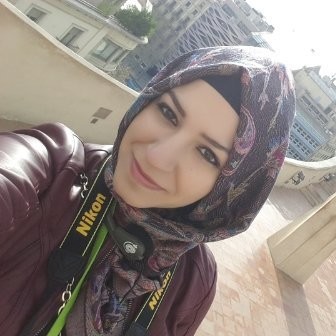is wazifa halal in islam in the United States?
The practice of wazifa, which involves reciting specific verses or prayers for a desired outcome, is a controversial topic in Islam. Some scholars argue that it is permissible (halal) as long as it does not involve any form of shirk (associating partners with Allah) or going against Islamic teachings. They view it as a means of seeking Allah’s help and mercy. However, others argue that it borders on innovation and superstition, as it is not directly mentioned in the Quran or Hadith. Hence, individuals should exercise caution and seek guidance from knowledgeable scholars before engaging in wazifa. Overall, it is a gray area in Islam, hence the verdict remains debatable. ❌
About wazifa in lam in the United States
Introduction:
Wazifa is a highly regarded practice within Islamic traditions, particularly among followers of the Sufi path. Derived from the Arabic word “wazafa,” which translates to “to employ,” it refers to the recitation of specific verses from the Holy Quran or supplications (duas) to seek spiritual blessings or solutions to various life challenges. Wazifa in Lam, also known as “Wazifa Lamiya,” is a distinctive form of supplication used by devout Muslims seeking divine intervention.
Wazifa in Lam involves the recitation of selected chapters or verses from the Quran, where each verse commences with the Arabic letter “Lam” (ل). The letter “Lam” is believed to possess metaphysical properties that can aid in invoking Allah’s mercy and gaining spiritual upliftment. The recitation of these verses is performed with utmost devotion, humility, and faith, as believers seek to establish a direct connection with the Almighty and receive His blessings.
This wazifa offers a means of enhancing one’s spiritual growth, seeking forgiveness for sins, or requesting favors from Allah. It is believed that through the continuous recitation of these lam-based verses, individuals can acquire immense benefits, such as spiritual enlightenment, protection from evil, resolution of personal problems, and fulfillment of heartfelt desires.
It is crucial to approach Wazifa in Lam with sincerity, purity of intention, and dedication to Allah. The process entails consistent recitation, often at specific times or frequencies as prescribed by Islamic scholars or spiritual guides. Genuine belief in the power of these verses, along with adherence to Islamic principles, is considered essential for the efficacy of this practice.
Wazifa in Lam has been renowned for providing solace, guidance, and divine intervention for centuries, making it an integral aspect of Islamic spirituality and devotion. Its foundation lies in the belief that through earnest supplication and the repetition of sacred verses, individuals can obtain blessings and overcome various life challenges, relying upon the infinite mercy and wisdom of Allah.
wazifa in lam in the United States Halal Certification
Wazifa is a religious practice in Islam that involves reciting specific verses or prayers from the Quran to seek blessings or assistance from Allah. It is a form of supplication and is commonly performed by Muslims around the world, including in the United States. Wazifa can be recited for various reasons, such as seeking spiritual guidance, alleviating difficulties, or obtaining blessings for specific purposes.
In the United States, the Halal Certification process ensures that food products and services comply with Islamic dietary laws. The certification guarantees that the products are prepared and handled in accordance with the Quranic guidelines and are free from any haram (forbidden) substances. This allows Muslims in the United States to confidently consume halal-certified products, knowing that they fulfill the Islamic dietary requirements.
The Halal Certification process involves thorough inspections, audits, and compliance checks by recognized certifying bodies. These organizations assess the ingredients, manufacturing processes, and storage conditions of food products to ensure they meet the required standards. Once certified, the products can display a halal logo or label, indicating that they have undergone the necessary scrutiny and are compliant with Islamic dietary laws.
For Muslims residing in the United States, having access to halal-certified products is vital for maintaining their religious and dietary practices. The certification process provides assurance that the food they consume is not only permissible but also prepared in accordance with the principles of Islam.
In conclusion, wazifa is a religious practice and supplication that Muslims perform worldwide, including in the United States. The Halal Certification process is an essential aspect of ensuring that food products and services adhere to Islamic dietary laws within the United States, allowing Muslims to maintain their religious practices while consuming certified halal products.
Is wazifa in lam? Conclusion
In conclusion, the permissibility of practicing Wazifa in Islam is a complex matter that requires careful consideration. While Wazifa, which refers to supplications or invocations made to seek help or fulfill desires, is not explicitly mentioned in the Quran or the Hadith, it is not inherently forbidden in Islam. Muslims may engage in Wazifa as long as certain conditions are met.
Firstly, the intention behind practicing Wazifa should be purely focused on seeking closeness to Allah and seeking His guidance and support. It should not involve any association with shirk (polytheism) or reliance on supernatural powers outside the realm of Allah’s control. The supplications made in Wazifa should align with the teachings of Islam and should not go against any Islamic principles.
Moreover, Wazifa should not replace or undermine the established acts of worship prescribed in Islam, such as Salah (prayer), fasting, or giving Zakat (charitable donations). Muslims should prioritize these fundamental pillars of Islam and consider Wazifa as an additional form of seeking Allah’s assistance.
Furthermore, it is recommended to seek guidance from knowledgeable scholars or reliable sources when practicing Wazifa, as they can provide insights and guidelines to ensure its adherence to Islamic values.
Overall, whether Wazifa is considered Halal (permissible) or not in Islam is subjective and can vary depending on how it is practiced. Muslims should approach Wazifa with sincerity, follow Islamic principles, and seek knowledge from qualified individuals to ensure that their intentions and actions align with the teachings of Islam.
FAQs On is wazifa halal in islam
Q1: Is wazifa considered a halal practice in Islam?
A1: Yes, wazifa is regarded as a halal practice in Islam.
Q2: What is wazifa?
A2: Wazifa refers to the recitation of specific verses, names of Allah, or prayers for seeking help or blessings from Allah.
Q3: Can wazifa be performed for any purpose?
A3: Yes, wazifa can be performed for various reasons such as seeking guidance, healing, protection, success, or resolving personal or social issues.
Q4: Are there any specific guidelines for performing wazifa?
A4: Yes, it is recommended to follow the specific guidelines provided by Islamic scholars to ensure the proper performance of wazifa.
Q5: Is it necessary to perform wazifa in Arabic?
A5: While performing wazifa in Arabic is preferred, it is not obligatory. One may also perform it in their native language, as long as the intended meaning is maintained.
Q6: Can wazifa replace obligatory acts of worship in Islam?
A6: No, wazifa should not be considered as a replacement for obligatory acts of worship such as Salah (prayer), fasting, or giving Zakat.
Q7: Is it permissible to make wazifa a means of earning money or seeking worldly benefits?
A7: No, it is not permissible to commercialize or exploit wazifa for personal gain or worldly benefits. It should be performed with sincerity and solely for seeking Allah’s help and blessings.
Q8: Can someone else perform wazifa on behalf of another person?
A8: Yes, it is permissible for someone else to perform wazifa on behalf of another person with their consent, especially in cases where the person is unable to do so themselves.
Q9: Are there any time restrictions for performing wazifa?
A9: No, there are no specific time restrictions for performing wazifa. It can be done at any time, but certain specific times, such as during Tahajjud or after obligatory prayers, are considered more favorable.
Q10: Is there any limit to the number of times wazifa should be recited?
A10: There are no fixed limits prescribed for the number of times wazifa should be recited. It can be performed as per one’s capacity and convenience, with sincerity and focus.

Hello, fellow explorers and cultural enthusiasts! I’m Sacide Tuba Barkçin, the heart and soul behind ‘Halal Travel Style’. My passion for travel is not just a hobby, it’s a way of life. From bustling city streets to serene natural landscapes, I’ve been fortunate enough to traverse diverse terrains and immerse myself in various cultures.
My journey is not just about seeing new places; it’s about experiencing the world through the lens of Halal. Every destination I visit, every story I write, is a testament to the harmony of travel and faith. I believe that exploring the world should not compromise our beliefs, but rather enhance our understanding and appreciation of them.
Join me as I navigate the globe, one Halal experience at a time. Whether you’re a seasoned traveler or just starting your journey, I hope to inspire you to explore the world with faith and style.
